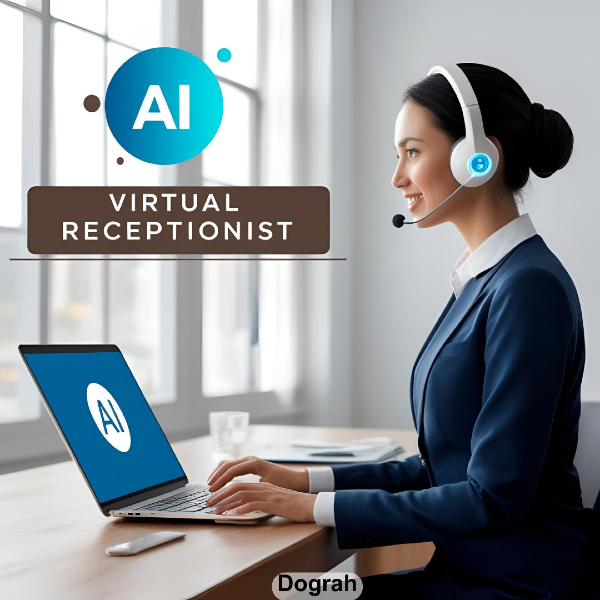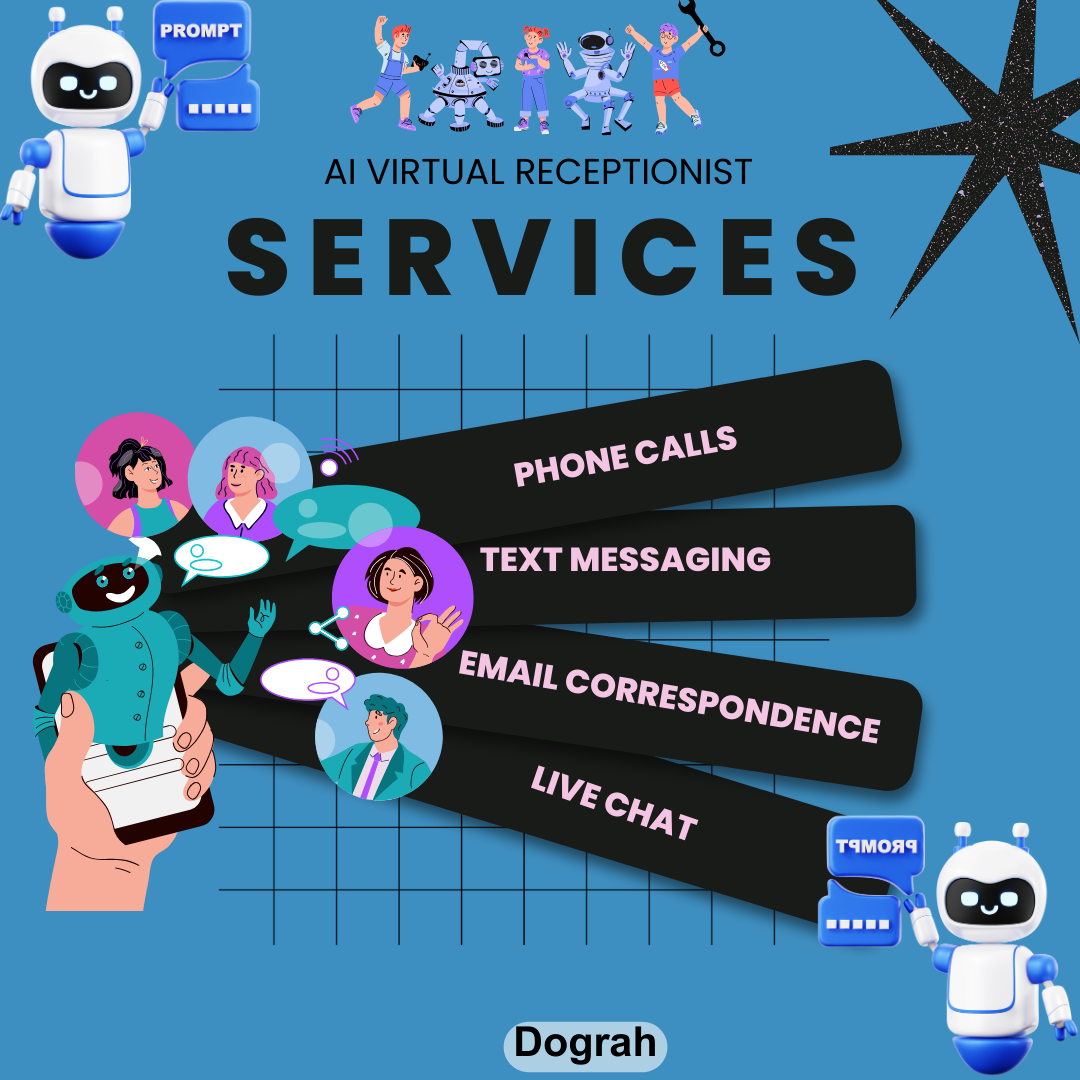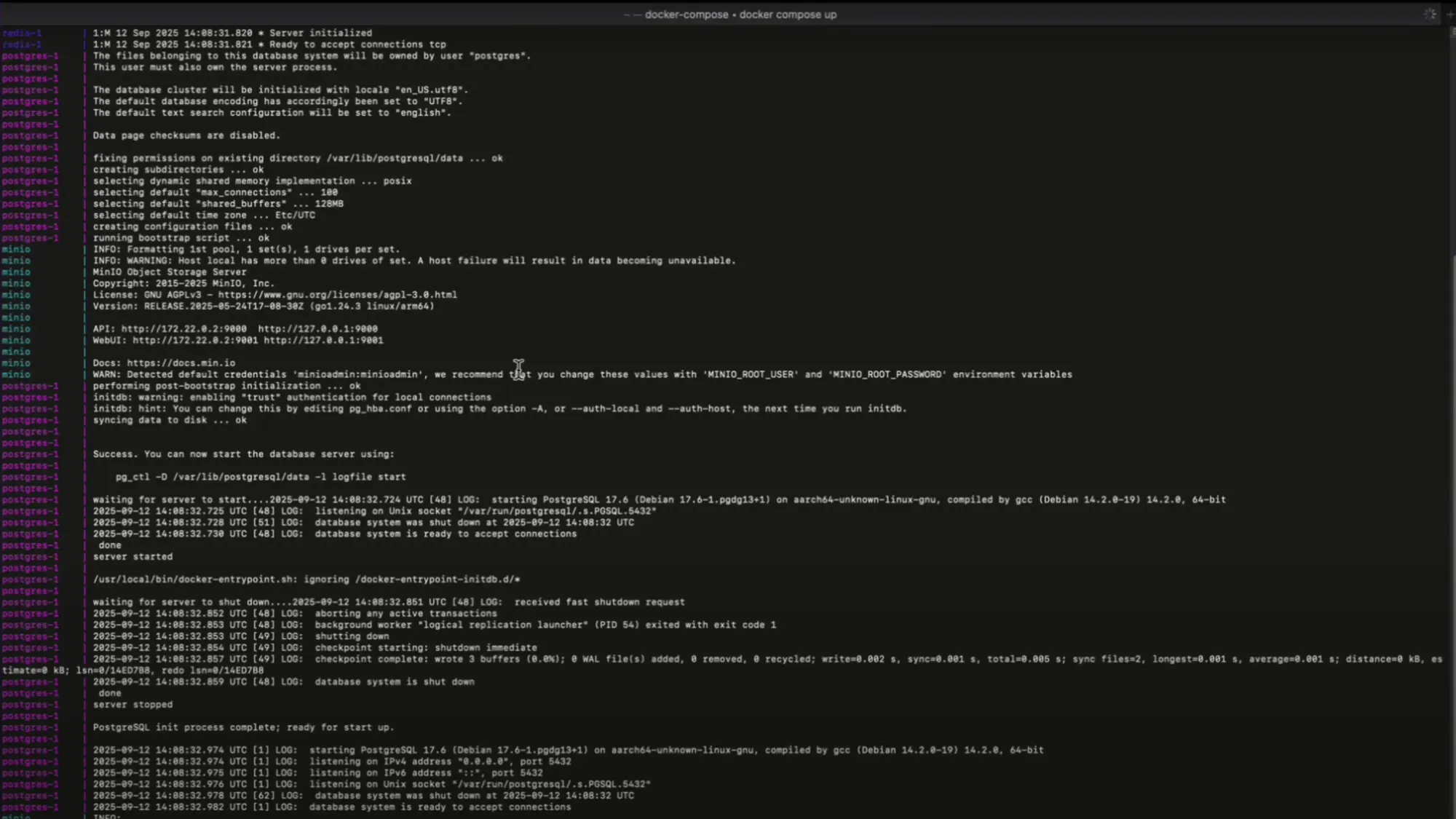
A shocking to small and medium-sized businesses never get answered. This makes getting the best virtual receptionist a must-have for your business. Your business could be losing around $126,360 each year from these missed calls. These are potential clients who simply walk away and choose your competitors when nobody picks up the phone 62% of calls.
Virtual receptionists have changed the game in today's business world. Companies that answer leads within an hour are seven times more likely to have real conversations with decision-makers than those who take longer. Small businesses now realize this and turn to virtual receptionist solutions. These services use smart AI systems that work round the clock, so no lead waits for a response. The best part? The setup costs pay for themselves in just 4-6 months, and ROI goes beyond 300% each year.

Small Firms Lose Clients Without 24/7 Response
Small businesses face a silent threat that eats away at their revenue and growth potential each day. Studies show businesses miss 34% of their incoming calls daily. A small business handling 30 calls each day loses 10 potential clients who end up going to competitors.
Missed Calls Equal Missed Revenue
Missed calls create a staggering financial drain. Each missed call can cost businesses up to $250 in potential revenue. These numbers add up faster:
- Businesses missing 10 calls lose $2,500 each day
- Monthly losses climb to about $50,000
- Revenue losses can reach a crushing $650,000 yearly
These numbers don't count the lifetime value of customers who could have become loyal clients. A missed plumbing repair call in the home services sector means losing a $500 job. One real estate agent used an AI assistant to recover a $30,000 commission deal that would have gone to voicemail and landed with a competitor.
Missed calls waste marketing investments too. Your $50 per lead spent on digital advertising or local campaigns goes down the drain with each unanswered call. Businesses in specialized fields like legal services or healthcare face even bigger losses as their customer acquisition costs run into hundreds of dollars.
Why Traditional Reception Fails Modern Expectations
Traditional reception methods can't keep up with what customers want today. Research shows 51% of people think businesses should be available 24/7 to meet their convenience expectations. Traditional strategic planning with fixed cycles worked well before but struggles with today's ever-changing world.
Digital age customers have no patience. 46% of customers want responses in less than four hours, and 12% expect answers within 15 minutes. Customer service emails take 12 hours on average to get a response. This shows a big gap between what customers need and what they get.
Traditional reception models break down in many ways. Customers calling after hours deal with old voicemail systems and often don't book services. These methods also struggle with information overload in today's digital world, which slows down decision-making.
Bad service hurts more than just immediate sales. One in three customers abandon brands they love after one bad experience, and 92% leave companies after two or three negative interactions. Poor response times damage your brand's reputation through negative reviews that spread the damage further.
Businesses using old reception models fall behind their competition. Small businesses that use virtual receptionist phone systems gain an edge by responding to after-hours calls and winning clients before competitors can. Today's market demands more than just answering phones—it needs systems that protect revenue, reputation, and customer relationships from being lost forever.

AI Virtual Receptionists Solve the Availability Gap
Up-to-the-minute availability serves as the life-blood advantage of modern virtual receptionist systems. Unlike traditional methods, AI-powered virtual receptionists ensure "". This bridges the availability gap that small businesses face no lead or inquiry goes unanswered—even after hours.
How 24/7 Virtual Receptionists Work
Virtual receptionists blend state-of-the-art AI technology with business-specific knowledge to handle incoming communication 24/7. These systems work through multi-layered processes:
The technology routes incoming calls using advanced telephony systems that create clear connections with minimal delay. The AI receptionist then answers with customized greetings that match your brand's voice and tone. These greetings come in "10+ languages" to serve diverse clientele.
These systems perform several vital functions at once:
- Route calls quickly to the core team or departments
- Answer common questions using knowledge bases
- Collect caller information for follow-up
- Book appointments and manage schedules
- Create detailed call summaries and transcripts
The system's intelligence improves with time. One provider notes that virtual receptionists get "" and " handle complex situations" by studying communication patterns. This learning process creates customized interactions that sound more human smarter after each call.
The system's ability to merge with existing business workflows stands out as its biggest technical achievement. Most virtual receptionist platforms offer a "simple setup process that doesn't require a technical degree". Many solutions start working "in under 10 minutes".
Virtual Receptionist Phone System for Small Businesses Explained
Small businesses use virtual receptionist phone systems as detailed communication hubs rather than basic answering services. These platforms run on a three-step framework:
The system learns your business details through a quick setup where you "answer a few questions about your business and your typical customers". The AI then uses this information to build a "customized prompt" made just for your operations.
The system then merges with your current business workflows. Modern virtual receptionist solutions give you "flexible options" such as:
- Custom messages about business hours and locations
- Smart call routing to extensions and departments
- Multiple language choices for diverse clients
- Different settings for business hours and after hours
- Name-based dialing features
The final step involves making improvements through data analysis. Most systems provide "up-to-the-minute analytics to gain full visibility into the AI Receptionist's performance". This helps businesses improve their communication strategy.
Small businesses benefit from enterprise-level features without the complexity or cost. Virtual receptionists build "a more established business presence". They offer professional, consistent interactions whatever time clients call.
The benefits go beyond just being available. Virtual receptionists handle routine calls and "managing repetitive tasks". This frees up staff time for more important work. The systems also connect with "calendar systems, CRMs, and other business software". This keeps all customer interactions in sync across platforms.
Virtual receptionists offer a high-tech yet simple solution for businesses that want to stay available without increasing costs.
Smart Receptionists Qualify Leads and Book Appointments
Virtual receptionists do more than answer calls. They qualify leads and manage appointments that directly affect your small business's bottom line. These advanced features make virtual receptionists powerful tools for business development, not just simple answering services.
AI Virtual Receptionist with Top Lead Qualification Features
Modern AI virtual receptionists use smart lead qualification processes to filter out poor-fit inquiries. Your business will find this helpful as call volumes grow, and your staff won't waste time on unqualified leads.
Lead qualification features has:
- Custom qualification questions - Systems like Smith.ai let businesses set up to three qualifying "yes or no" questions to check if callers meet specific criteria
- Location-based screening - Virtual receptionists filter out callers from regions you don't serve
- Service-matching qualification - AI systems check if callers need your actual services to avoid mismatched inquiries
- Multi-step qualification logic - Advanced systems use branching logic that gives different responses based on caller answers
The system works quickly. The AI receptionist checks qualification criteria when potential clients call. Callers who don't meet your requirements get a polite message that you can't help them. This saves time for everyone involved.
Research shows that talking to a real person on the phone. The best virtual receptionist solutions for small businesses match this preference with speed. They handle the first qualification step while keeping a conversational, human-like approach over 80% of consumers prefer.
Appointment Scheduling and CRM Integration in Action
Virtual receptionists shine at managing appointments. These systems blend with popular calendaring tools like Google Calendar and Outlook to schedule seamlessly.
The appointment scheduling process has:
- Real-time calendar access to check availability
- Instant booking of new appointments
- Management of cancelations and rescheduling
- Automated email and text confirmations
- Calendar conflict checking before booking
Virtual receptionist CRM integration creates significant time savings. Smith.ai's system within connected CRM platforms. The system adds activity to existing contact records and creates new records for fresh leads automatically automatically logs every customer interaction.
Your business gets these advantages:
- Complete call documentation with full summaries in CRM systems
- Automatic population of calls in CRM call sections
- Quick access to recordings and transcripts for future reference
- No manual data entry and fewer errors
- Centralized customer data across all interaction channels
The integration helps businesses keep updated, centralized databases while giving live insights to customer service teams. Virtual receptionists don't just answer calls-they build detailed customer records that make every future interaction better.
Lead qualification and appointment scheduling work together as a powerful efficiency tool. Virtual receptionists qualify new leads, check for conflicts, and book appointments in one call. Your operations become streamlined while your calendar fills with qualified prospects, making each scheduled appointment more valuable.

Virtual Receptionist Services Boost Client Trust and Retention
Customer responsiveness directly affects business credibility and staying power. 89% of businesses now compete based on their customer service experiences. Quick responses have become the most important factor in choosing the best virtual receptionist for small business solutions.
How Instant Replies Build Credibility
Your potential clients take a leap of faith when they contact your business. They need immediate validation. 73% of consumers will buy from your competitors if you don't respond to their social media messages. Customer expectations have grown higher, with 82% of customers wanting answers within 10 minutes.
Fast responses give businesses clear advantages:
- Companies see a 391% boost in conversion rates with one-minute response times
- Solving issues on first contact builds instant trust with new customers
- 78% of shoppers pick the first business to respond
- Response speed influences buying decisions, whatever the solution quality
Virtual receptionist services meet these expectations by watching all communication channels around the clock. This 24/7 availability means every message gets answered, which helps build stronger client relationships through consistent responses.
Multilingual and Omnichannel Support for Diverse Clients
Modern businesses must communicate well with people from all backgrounds. Supporting multiple languages has become a must, not just an option for small business virtual receptionist solutions.
Non-native English speakers actively look for businesses offering multilingual support. Top virtual receptionist companies now offer translation for over 200 languages. This helps businesses connect clearly with more clients.
Omnichannel support has also become essential. Today's customers want help through:
- Phone calls (older generations prefer these)
- Text messaging (younger people like this best)
- Email correspondence
- Live chat functionality
Clients can start conversations their way - maybe beginning with live chat, then easily switch to email without losing their place.
Quality virtual receptionist services blend with your booking systems, business tools, and messaging platforms. This integration creates smooth, accurate interactions that build trust as time goes on.
Small businesses using virtual receptionist phone systems see big improvements in keeping customers. Since 90% of customers trust companies that give "very good" service (responding within ten minutes), virtual receptionists help create the professional, responsive presence needed for lasting client relationships.
Small Businesses See ROI from Virtual Receptionist Adoption
Marketing promises don't tell the whole story - businesses that use virtual receptionist services see real returns on their investment. Small businesses of all types have found that there was more to virtual receptionists than just answering calls. These services directly affect revenue growth and make operations more efficient.
Best Virtual Receptionist Small Business Case Studies
Success stories prove how well virtual receptionists work. One small business "instantly grew revenue because they were able to work with more customers" after they started using a virtual receptionist service. An immigration law firm's partnership with a virtual receptionist "greatly boosted customer interactions." This helped reduce their team's workload and let them expand their business.
Law firms reported better client relationships across the board. A busy healthcare clinic solved their overwhelming call volume with virtual receptionists. Their staff could focus on patient care, which led to better satisfaction scores.
A tech startup's story stands out even more. They were struggling to keep up with rapid growth until virtual receptionists helped manage their customer questions. This improved their service reputation and set them apart from competitors.
Cost vs. Value
Numbers show that virtual receptionists make financial sense. Traditional in-house receptionists cost about $4,491 monthly before ongoing expenses. Virtual receptionist services start at just $125 to $550 per month.
Businesses save money in several areas:
- Office space: $6,000-$24,000 annually
- Utilities and supplies: $1,200-$3,600 yearly
- Equipment: $1,000-$3,000 per employee (one-time)
- Benefits and taxes: $500-$1,000 monthly per employee
Companies typically cut their overhead by 40-60% when they switch to virtual receptionists. The value goes beyond just saving money - teams save around 500 work hours each month. This lets them focus on activities that generate revenue instead of administrative work.
Small businesses get enterprise-level customer service without the big price tag. Virtual receptionists give them the flexibility they need to grow. The ground-level savings and better service quality create lasting value that continues well after implementation.

Getting started with Dograh
Interested in leveraging Dograh for lead generation, cold calling or business automation ? Here’s a streamlined path to getting started, along with direct links to essential resources :
1. Dograh AI: Quick Start Demo
2. Run Docker Command
Download and Start Dograh first startup may take 2-3 mins to download all images
3. Quick Start Instructions
How to Build AI Voice Agent - Step by Step with Dograh
Step by step written guide to building and deploying your first voice AI Agent
- Open Dashboard: Launch http://localhost:3000 on your browser.
- Choose Call Type: Select Inbound or Outbound calling.
- Name Your Bot: Use a short two-word name (e.g., Lead Qualification).
- Describe Use Case: In 5–10 words (e.g., Screen insurance form submissions for purchase intent).
- Launch: Your bot is ready! Open the bot and click Web Call to talk to it.
4. Community & Support
Join Slack Community and discuss issue with Dograh experts :
5. Additional Resource
Related Blog
- Discover the Top AI Communities to Join in 2025 for innovation and collaboration.
- Learn what makes Voice-Enabled AI Workflow Builders Effective in 2025.
- Discover how Making AI Outbound Calls Work: A Technical Guide for Call Centers can streamline automation and boost call efficiency.
- Explore AI Outbound Calling in 2025: What Actually Works Now to learn proven strategies for effective, real-world voice automation.
- See how 24/7 Virtual Receptionist Helps Small Firms Win More Clients by boosting responsiveness and improving customer engagement.
- Learn how How Call Automation Cuts Outbound Calling Costs by 60%: Virtual Assistant Guide can transform your call center’s efficiency and savings.
FAQ's
1. What are the benefits of using a virtual receptionist for small businesses?
Virtual receptionists provide 24/7 availability, qualify leads, book appointments, and integrate with CRM systems. They help small businesses capture more clients, improve customer service, and focus on core business activities while reducing overhead costs.
2. How much does a virtual receptionist service typically cost?
Virtual receptionist services are generally more cost-effective than in-house receptionists. Plans typically range from $125 to $550 per month, offering significant savings on office space, equipment, and employee benefits compared to traditional staffing.
3. Can virtual receptionists handle multiple languages and communication channels?
Yes, leading virtual receptionist services offer support for over 200 languages and can handle communication across various channels including phone calls, text messages, emails, and live chat, catering to diverse client needs.
4. How do virtual receptionists improve lead qualification and appointment scheduling?
Virtual receptionists use custom qualification questions, location-based screening, and service-matching to filter leads. They also integrate with calendar tools to manage appointments, check availability in real-time, and automatically send confirmations, streamlining the entire process.
5. What kind of return on investment (ROI) can small businesses expect from virtual receptionists?
Small businesses typically report significant ROI from virtual receptionists, including reduced overhead costs by 40-60%, savings of approximately 500 labor hours monthly, improved customer satisfaction, and increased revenue due to better lead capture and client retention.
Was this article helpful?



